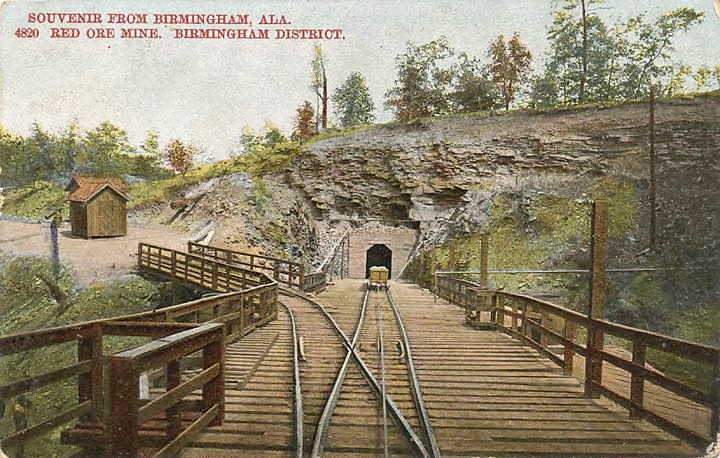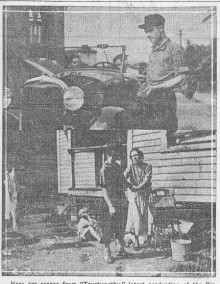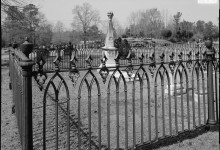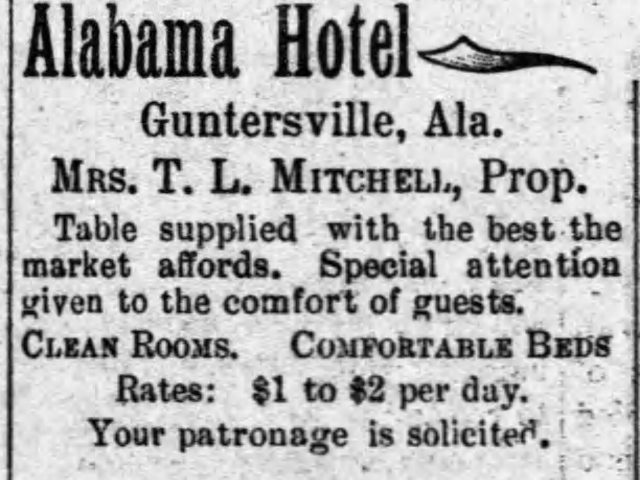During the Great Depression in America, the Works Progress Administration (WPA) was an employment program created by President Roosevelt in 1935. Over its eight years of existence, the WPA put roughly 8.5 million Americans to work. The Federal agency employed tens of thousands of actors, musicians, writers, and other artists to capture the essence of American life. Many authors throughout Alabama interviewed and wrote interesting stories about people in Alabama. This story was written by Nettie S. McDonald about Mary and Augustus DeRoy, Republic, Alabama.
W.P.A.
Alabama Writers Project
Life Histories/Stories
By
Nettie S. McDonald, Writer
(Transcribed exactly as written with grammatical errors on July 14, 1939, and may include some offensive language)
MARY WORKED IN THE MINES IN BELGIUM
PART I
“Come over to America and you can make a fortune,” is what my father-in-law wrote back to us in Belgium,” said Mary DeRoy.
Mary DeRoy is a large, dignified woman, still proudly erect, though seventy-three years old. Her soft, white hair was combed straight back from her forehead and fell in deep, natural waves. A little curl nestled beside her widow’s peak. Her clear brown eyes nearly closed when she laughed. She wore a clean, faded percale dress and her apron was tied around her large waist.
Mary and Augustus DeRoy keep house in two rooms, but in their kitchen is where they really live. It’s a large, comfortable room painted cream color and it is very very clean. The floor is completely covered with bright flowered linoleum. A three-burner oil stove, two cupboards full of pans and dishes, a table with red and white oil cloth, a few kitchen chairs, a sewing machine and three large rockers with soft cushions on the seat and on the backs, furnish the kitchen. Crisp red and white curtains make the room very gay.
Mary DeRoy got her big, black pipe, filled it, placed a large bowl beside her chair, lit her pipe and started puffing away. The smoke seemed to carry her back to her early life in the old country.
Never saw her parents again
“Let me see, now,” She began, “It’s been nearly thirty-five years since we got that letter from Augustus’ father. We sold everything as quick as we could and me and Augustus and the two children (the other two died the year before) set out for America the ‘promised land’ and from that day to this, we never have had enough money to take us back there. My old father and mother told me that they would never see us again if we went so far away. I couldn’t believe it, but they sure were right, for they died twenty years ago without ever seeing us any more. A slow tear coursed down her broad cheek as she looked away. Then she shook her head and went bravely on:
“Since I came over here, my life has been different. When I was just a slip of a girl, I started to work in the mines in Belgium. Oh, sure girls worked in the Belgium mines! Young girls and pretty, too. We all worked in pants. God knows we couldn’t do a thing with skirts swishing around our legs. When we went into the mines, we had to take two safety lamps along. These lamps are just like the ones the fire bosses use in this country. I could carry both of mine on two fingers on the same hand.
We’d go down, down, down seventeen hundred yards in a cage. Then after we got out of the cage we had to walk at least a mile before we’d get to our work. I’d put one lamp on one post and the other one on a post close by. That would give me plenty of light to work by.
Turning the wheel was the hardest job
“Oh, they’d give us girls ‘most any kind of work to de-pushing cars, stopping cars, and turning the wheel that pulled the cars onto the cage. Turning that wheel was the hardest job I had. I used to brace myself against the post and push for dear life. It took a real woman to do that job. I sure was proud for not many of the women could do it, and besides that, it paid fifteen cents a day more than any other job.
“Sometimes other girls would try and try, but they couldn’t turn it. They wanted to make the extra money, and because they couldn’t, they’d turn up their noses at me, because I could. I remember the worst fight I ever had in the mine was when a girl sent me word that she would slap my face for taking her job at the wheel. I waited for that girl, and when she saw me, she started in to beg me to wait till her sister got there to help her, but I didn’t wait. I got her up against a post and I gave her one good beatin! I always said, ‘don’t start a fight you can’t finish.’
Worked in mine until I married
“I kept on working in that mine until I married. When my first baby was five months old, my brother asked me to come back to the mine and help him out for a while. I paid my mother-in-law to keep the baby, and I started back to work. I did fine until my breasts filled up with milk and hurt so bad I couldn’t use my arms. Then I’d stop and draw out the milk with a pipe. That used to make me feel awful bad. There I was, wasting the milk that my baby was at home crying for.
“I kept that work up for a year-until my brother didn’t need me anymore. Then I opened a little store and I carried everything to eat– but not a thing in cans. Salt, pepper, tea, bluing, starch-everything was loose in jars and had to be weighed. I kept paper sacks of all sizes. Oh, I was a real businesswoman woman alright. I peddled too. At first, I had a great big Belgian dog to pull my cart, but he was too fast, so Augustus sold him and bought me a jackass. He was lots better.
“I had all kinds of fruit-apples, peaches, plums, grapes, and I had potatoes and oysters in the shell. I made up a song about my fruit, and as I’d ride along, I’d sing it. Those were happy days. They could hear my song for a mile, and when my customers heard that song, it was too bad for the other peddlers, for they couldn’t sell a thing. I made jokes with my customers, and that kept them in good humor and then they’d buy more.
Selling sandwiches at night
“After I get through with my store peddling, I used to go home and make sandwiches to sell that night. As I think back, I can’t help laughing about some sandwiches I sold once. It was at night, and there was a big dance under the tents. I made lovely horse liver sandwiches with plenty of onions. The boys and girls would come over and buy sandwiches between dances, like the boys and girls nowadays buy a Tom Collins. Well, that night my sandwiches tasted better than ever. A real pretty girl came over to me and said, ‘Now, you’re sure these are cow liver sandwiches and not horse liver?” ‘Oh,’ said I ‘you know I wouldn’t sell you something I wouldn’t eat myself.’ She smiled and bought another one. But I dont mind telling you those wee horse liver sandwiches.
“I believe that’s one thing that makes the Belgian people so strong. Horse meat really makes you strong. Sure, it’s good. You can’t tell the difference between horse meat and cow meat to save your soul. A nice steak from a horse leg is good eating. I just can’t eat this meat they sell in tins. You know yourself, they don’t can the best of the meat, and I wouldn’t doubt that half the canned meat they’re all fussin’ about from that foreign country, is canned horse meat.
“Belgian people eat lots of fish and oysters, too. When the peddlers brought fish around every Friday, all the bones were taken ou,t and it was clean enough to eat without washing it, if you wanted to.
(Continued in Part II)
Vinegar of the Four Thieves: Recipes & Curious Tips from the Past
This book is a compilation of some of the funny and helpful tips from our past history. Some recipes and tips date back to 1770s. One or two sound a little dangerous and I would never try them myself, but I’ve included then in this book for their humorous and historical value. A few are useful, especially for our ‘green’ society today.





